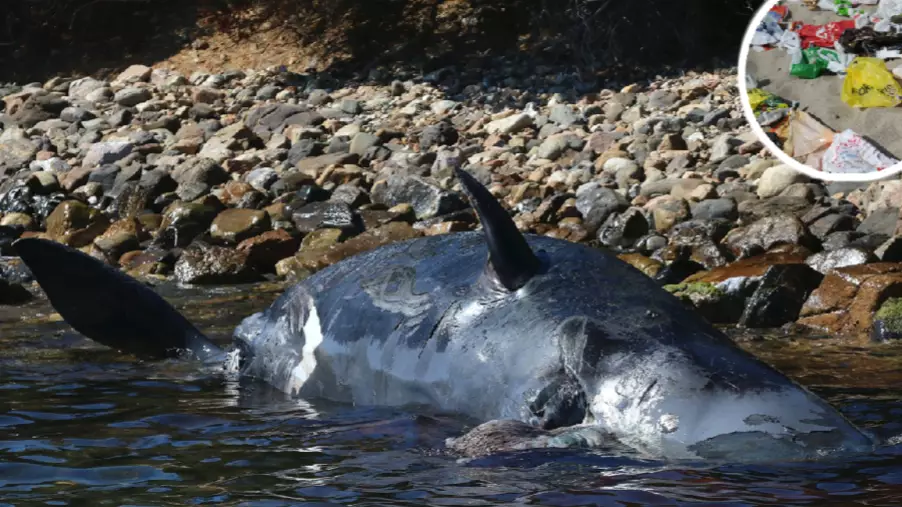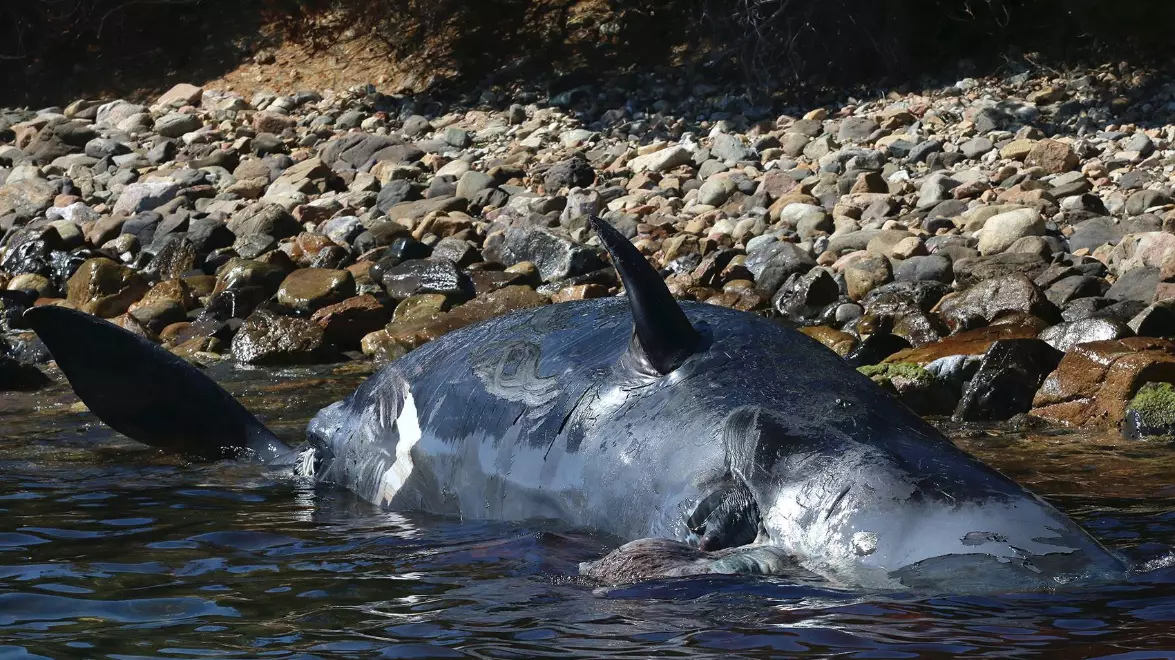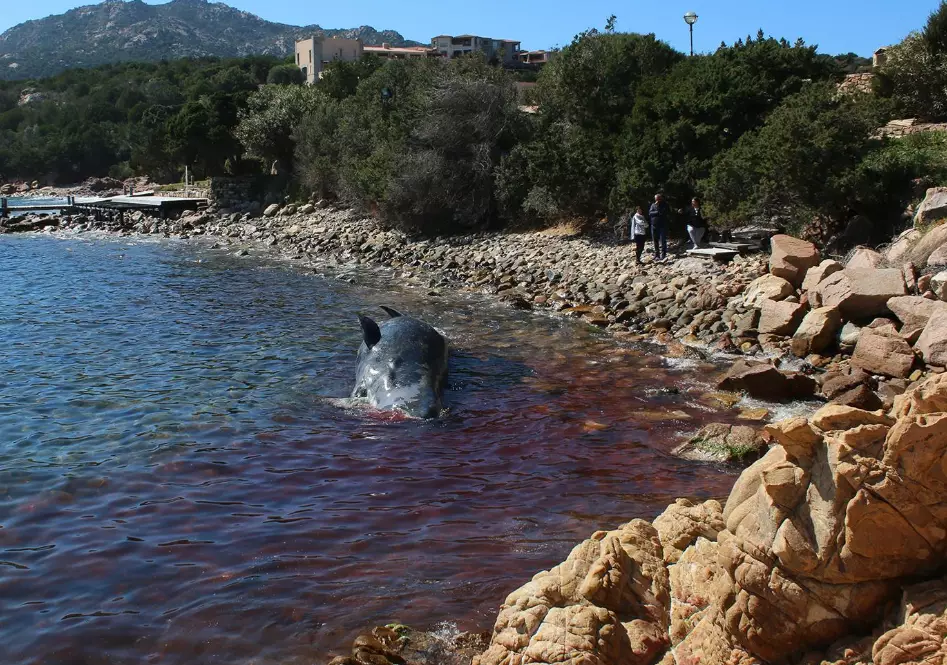
A pregnant sperm whale washed up dead on a tourist beach after having swallowed 22kg of plastic waste.
Her stomach was later found to contain shopping bags, plates and a box of washing powder, after she was found at Porto Cervo, in Sardinia, Italy.
According to reports, it's believed she had ingested such a large quantity of plastic she was unable to digest actual food.
Advert
Distressing photos were taken of the soon-to-be mother lying on the shore, before being taken away. Experts have now said it's the first time they have seen such a 'huge quantity' of waste inside an animal.

Speaking to Sky News, Luca Bittau, a spokesperson for non-profit organisation SEAME Sardinia, said: "Plastic in the oceans is a huge problem, we can remove the plastic in the surface but we can't do anything about the plastic at the bottom of the oceans.
"All the plastic is there and it will be there for ever. We have to reduce the use of plastic in our daily life, especially the single-use plastic. We have to change our habits and use other materials like wood."
Advert
And Italy's environment minister Sergio Costa has since pledged to take action on marine litter.
In a post to his Facebook page, the politician said: "Marine litter afflicts the whole marine world, not just Italy of course, but every country in the world has the duty to apply policies to combat it."
This is not the first time plastic waste has led to the death of one of these amazing creatures.
Last month a dead whale that washed ashore in the Philippines was found to have 40kg (88lbs) of plastic in its stomach.

The Cuvier's beaked whale was found dead in the Compostela Valley earlier in March; an autopsy was carried out by staff from Bureau of Fisheries and Aquatic Resources Fishery Management Regulatory Division, led by marine biologist Darrell Blatchley, who owns D'Bone Collector Museum, and Dr Elaine Belvis where the shocking discovery was made.
Advert
Blatchley told CNN its cause of death was dehydration and starvation due to swallowing so much plastic. He said it 'had the most plastic we have ever seen in a whale'.
"I was not prepared for the amount of plastic. Forty kilos roughly of rice sacks, grocery bags, banana plantation bags, and general plastic bags. Sixteen rice sacks total. It was so big; the plastic was beginning calcification."
According to the World Wildlife Foundation, plastics are one of the deadliest threats to marine wildlife - with the group claiming around 500,000 tonnes of waste enters Europe's oceans every year.
Featured Image Credit: PA/SEAME SardiniaTopics: Food, World News, UK News, Interesting, trash isles, Facebook, Animals